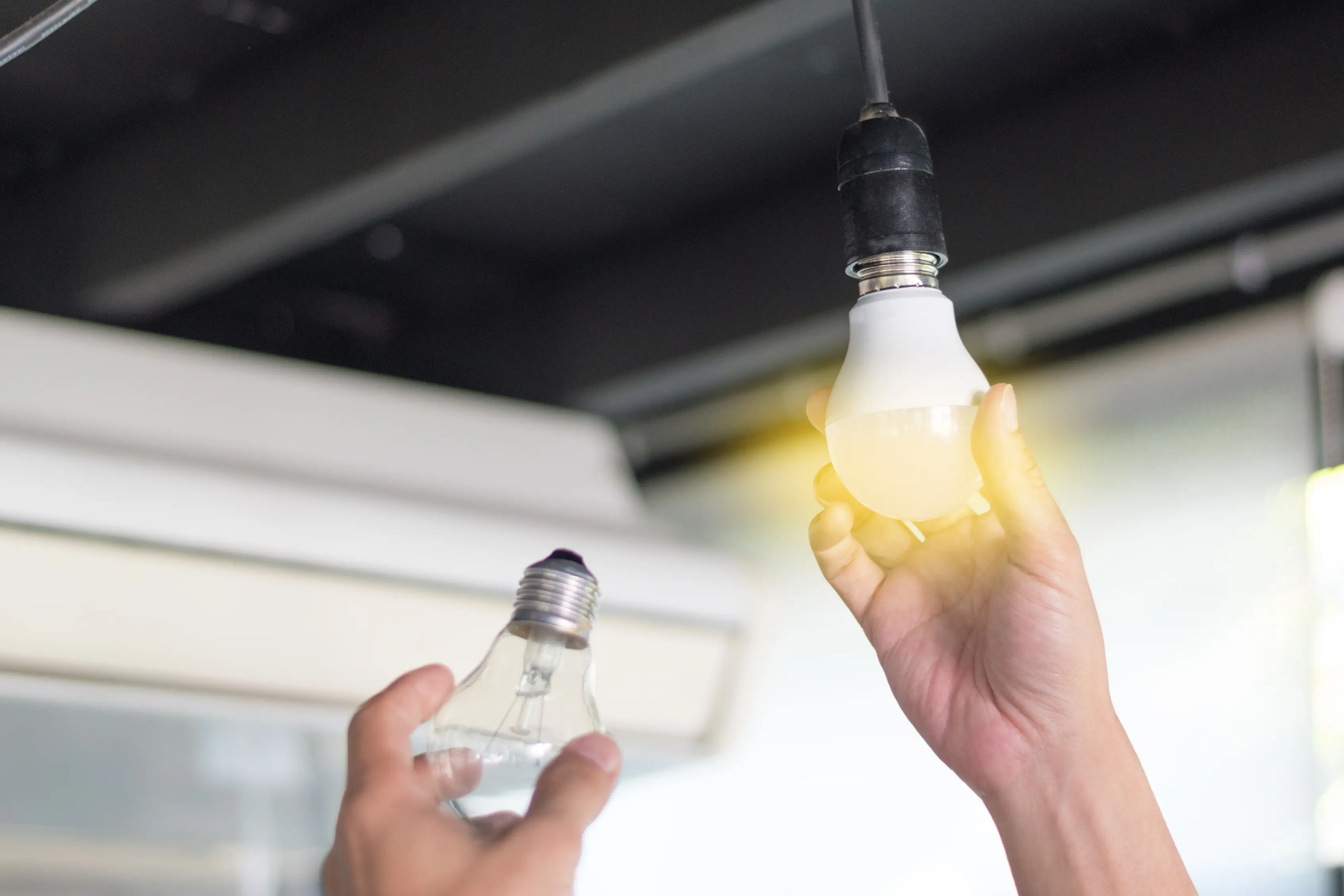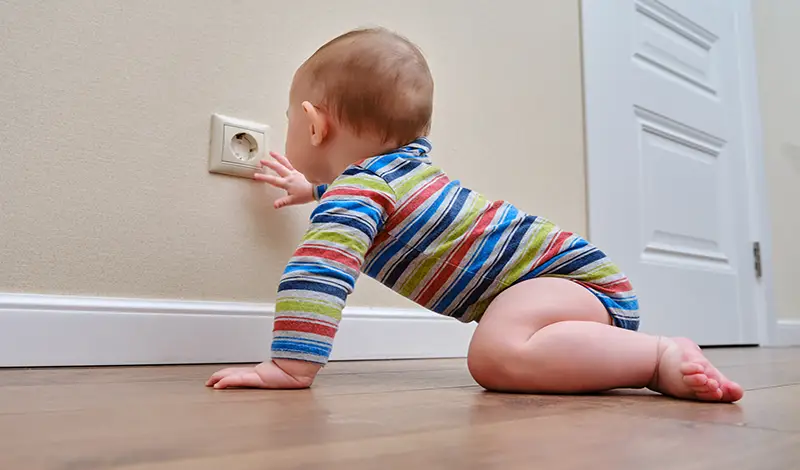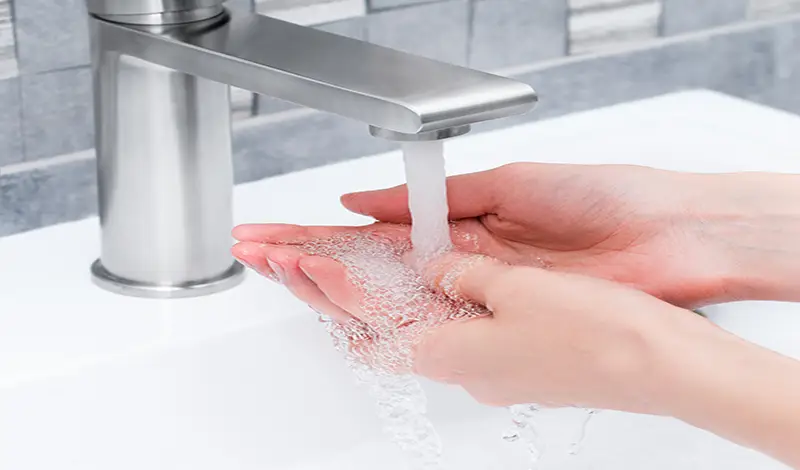How to Save Energy in Your Home
Published on April 29, 2024 | 4 Minute read

Melanie
Ortiz Reyes
Content Specialist
Nowadays, energy conservation is not just a trend but a necessity and finding ways to save energy at home is crucial. Not only does it reduce your carbon footprint, but it also saves you money in the long run. With a few simple changes and habits you can reduce your energy consumption without compromising on comfort or convenience. Here are some practical and effective ways to save energy in your home.
Upgrade to Energy-Efficient Appliances
Older appliances consume more energy than newer, energy-efficient models. Consider upgrading to appliances with ENERGY STAR ratings. These are designed to use less energy without sacrificing performance. This includes refrigerators, washing machines, dishwashers, and HVAC systems. While the initial cost might be higher, the long-term savings on energy bills make it a worthwhile investment.

Use LED Lighting
Switching to LED bulbs is one of the easiest and most effective ways to save energy. LED bulbs use less energy than traditional incandescent bulbs and last much longer, reducing the frequency of replacements. Additionally, they emit less heat, reducing the strain on your cooling systems during hot weather.
Optimize Heating and Cooling
Heating and cooling account for a significant portion of household energy consumption. To save energy in this area:
- Set Thermostat Wisely: Lower your thermostat in winter and raise it in summer to reduce energy usage. Consider installing a programmable thermostat to adjust temperatures automatically based on your schedule.
- Regular Maintenance: Clean or replace air filters regularly in HVAC systems to ensure optimal performance and energy efficiency.
- Insulate and Seal: Properly insulate your home to prevent heat loss in winter and keep it cool in summer. Seal gaps around doors, windows, and ducts to minimize air leaks.
Reduce Water Heater Temperature
Lowering the temperature on your water heater to 120 degrees Fahrenheit can save energy and reduce the risk of scalding. Most households don’t need water hotter than this for daily use, and every 10-degree reduction can save you up to 5% on water heating costs.

Unplug Unused Electronics
Many electronic devices continue to consume energy even when they are turned off but plugged in (known as standby power or phantom load). Unplug chargers, appliances, and electronics when not in use. You can use power strips to easily turn off multiple devices at once.
Use Energy-Efficient Windows
If you’re considering home renovations or upgrades, invest in energy-efficient windows. Double-pane or triple-pane windows with low-emissivity (low-E) coatings can reduce heat transfer, keeping your home cooler in summer and warmer in winter without overworking your HVAC system.

Utilize Natural Light
Take advantage of natural light during the day to reduce the need for artificial lighting. Keep curtains and blinds open, especially on south-facing windows, to maximize sunlight. Consider skylights or light tubes in darker areas of your home to further reduce reliance on electric lights.
Upgrade Insulation
Proper insulation in your walls, attic, and floors helps maintain a comfortable indoor temperature year-round. Insulation prevents heat transfer, reducing the workload on heating and cooling systems. Consider adding insulation if your home is older or if you notice temperature fluctuations.
Energy-Efficient Landscaping
Strategic landscaping can also contribute to energy savings. Planting trees and shrubs strategically around your home can provide natural shade in summer, reducing the need for air conditioning. Similarly, planting windbreaks can reduce heat loss during winter months.

Opt for Energy-Efficient Water Fixtures
Install low-flow showerheads, faucets, and toilets to reduce water usage. These fixtures use less water without compromising water pressure, helping you save on both water and energy costs associated with heating water.
Cook Efficiently
When cooking, use the right-sized pots and pans to match burner sizes on your stove. Cover pots and pans with lids to retain heat and cook food faster, reducing energy usage. Consider using microwaves or toaster ovens for smaller meals, as they are more energy-efficient than traditional ovens for quick cooking tasks.
Educate and Involve Your Family
Saving energy is a collective effort. Educate your family members about the importance of energy conservation and involve them in adopting energy-saving habits. Encourage turning off lights and electronics when leaving a room, using appliances efficiently, and being mindful of water usage.
Saving energy in your home doesn’t have to be complicated or expensive. By making simple changes to your daily habits and investing in energy-efficient upgrades, you can reduce your environmental impact and save on utility bills. Consistency is key, so make energy conservation a lifestyle choice for long-term benefits. Start implementing these tips today and enjoy a more eco-friendly home!